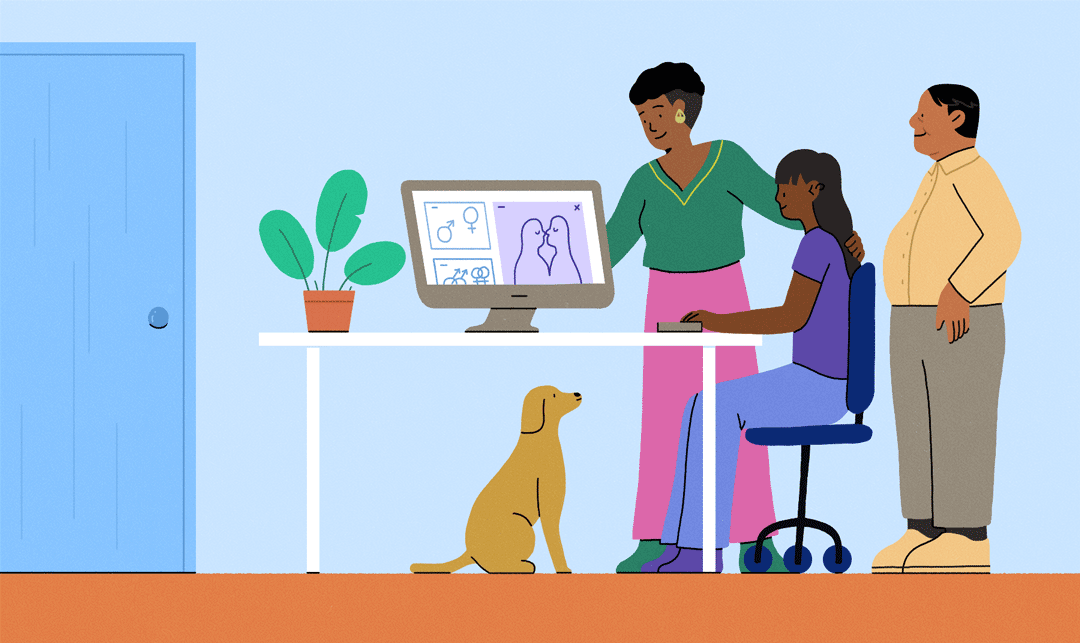
How To Make "The Talk" Less Awkward
Share
 For most people, they remember "the talk" as an uncomfortable moment in their adolescence. Parents or guardians try to talk about the joys and horrors of puberty, sex, and reproduction, but it typically comes out as awkward, stunted, and ill-informed. Why should "the talk" be dreaded? Puberty, sex, and reproduction are natural parts of life that all people go through, and they should be easy to talk about!
For most people, they remember "the talk" as an uncomfortable moment in their adolescence. Parents or guardians try to talk about the joys and horrors of puberty, sex, and reproduction, but it typically comes out as awkward, stunted, and ill-informed. Why should "the talk" be dreaded? Puberty, sex, and reproduction are natural parts of life that all people go through, and they should be easy to talk about!
What Puts People Off?
The largest issue that comes along with "the talk" is obvious, the fact that we call it something as ambiguous and ominous as "the talk." Sadly, sex and hormonal changes are regarded with a tremendous amount of shame.
Broadly, we don't discuss these topics because of social stigmas that make conversations about our bodies taboo. The discomfort surrounding anything deemed "impolite" or "mature" can pass down through generations, and sometimes, parents end up teaching their children the same things they learned, without taking time to breakdown or expand the "the talk." This approach can leave children feeling too nervous to ask questions and parents too uncomfortable to answer them.
How Do We Fix It?
Remaining calm and collected while bringing these topics up can ease the children you're trying to educate. Bodies grow and change, but they don't always do it the same way, so parents and educators should prepare to explore a wide range of subjects. The internet is a great resource and can support parents and educators as they guide children through these discussions. Kids might feel uncomfortable talking about their bodies, but you can make them feel more comfortable by being reassuring and gentle. Leading with shame may rupture the trust and sense of confidence. Topics should be flexible, and no question should be off-limits. This way, they can be unabashedly curious about current or future experiences.
Creating a safe space for your children is the best way to ensure they take their bodies as seriously as you do. Ultimately, teaching them to love and respect themselves will give them a better bond with you and a healthier outlook in general. This approach means talking through the wonders of menstruation with your female and male children, being open to discussing gay or lesbian sex, talking about gender dysphoria, the details of reproduction, and even dating and sex safety tips.
What Else?
Destigmatizing "the talk" starts with getting rid of the antiquated ideas that are associated with it. Being open to doing your research or even researching the things your kids want to know about is incredibly important. This effort teaches your children that they can trust the knowledge they're getting and you with their questions.
Puberty and everything that comes with it can be scary to have to face alone. Kids should feel they have a safe and honest person to talk freely with. Letting your kids know they are seen and heard and that their questions matter to you is a small step to help make it more comfortable for both of you.
So, don't let "the talk" be something you both dread. Make it a teaching and learning moment for you both. Puberty is a difficult transition, and without proper information and support, it can be even more challenging. Be your kid's support and take the awkwardness out of "the talk."

